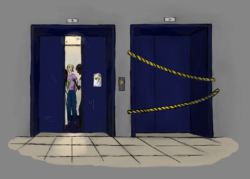If you want to find the single biggest drag on job growth in the United States, don’t look to the president. Don’t look to Congress, or at least not directly. It’s the state legislatures that are killing jobs, and the worst of the worst are led by Republicans.
What we’re talking about here is public sector jobs—teachers, policemen, firefighters, and the like. The Economic Policy Institute estimates we’ve lost at least 1.1 million of them since the recession ended in June 2009, and only six percent of the cuts have come from the federal government. As you could guess, the cuts have been deepest in Republican-controlled states, especially those captured by the GOP in 2010, such as Wisconsin and Ohio. Even if you are a Republican and don’t count government-funded jobs as actual employment, consider this: that same EPI study states that these losses have in turn cost the private sector more than 750,000 jobs.
On some level, state budget cuts are understandable. Whereas these governments only lost six percent of their revenues in the 2001 recession, they lost 17 percent between 2007 and 2009. But despite the slowdown, many conservatives have painted public sector unions as the culprits, saying they have forced governments to offer pay and benefit packages more lucrative than the private sector. The pay part of this argument is patently false. Compared to private sector workers of similar educational attainment and experience, public employees make four percent less, according to the Center for Economic Policy and Research, and this wage penalty widens to 11 percent for high-income workers. It is true that some public sector pensions are better than those available in the private sector, but this is undoubtedly a positive. If not through direct wages, there needs to be some incentive to get the most qualified people to head for the classroom instead of the boardroom.
The conservative misinformation campaign over pensions neglects another important dimension about public sector compensation. 2007 Federal Reserve data shows that 90 percent of these post-retirement benefits are financed with equities, broadly defined. In other words, the main reason they’re struggling is the stock market crash caused by lax regulation of Wall Street, not the imagined greed of public unions. But the GOP continues to leverage the problem caused by its laissez-faire policies against the teachers, policemen, and firefighters it considers societal parasites, and the corporate media has done precious little to uncover the real roots of the problem. Either way, the best way to alleviate these pension cost problems is to get the economy moving again so tax revenues rise, not by making already underpaid employees shoulder higher costs for retirement and medical bills.
Simply reversing the public employment numbers would easily knock a percentage point from the unemployment rate. If we not only corrected for public job losses but also restored state and local public assistance programs cut since the recovery began, the economists at EPI reckon we’d be adding around 2.4 million jobs. It wouldn’t be full recovery, to be sure, but it would make a huge difference for millions of Americans finally able to find work.
That’s where the blame falls on Congress. Obama’s stimulus package included some funding to alleviate state and local budget woes, but ultimately covered only about a third of the hole. The president has since called repeatedly for more relief funding, but we all know how that went down in Congress.
The frustrating part is that this shouldn’t be a contentious issue. Even David Wessel of the Wall Street Journal and Zanny Minton Beddoes of The Economist— two very fiscally conservative news outlets—think reviving the public sector is a good idea. During a July 18th segment on National Public Radio’s Morning Edition, both decried the cuts in state and local governments as the biggest drag on economic growth. They aren’t alone in their contempt for Republican “economics.” You’d be hard pressed to find any reputable economist who supports the GOP economic platform of austerity for the masses and tax breaks for the rich.
If Congress was full of pragmatists, they’d write up a bill tomorrow for a new federal revenue sharing program with state and local governments. This is, of course, a pipe dream. But, while the legislative roadblock impedes actual recovery, it holds a valuable campaign opportunity for all progressives. If they highlight the egregious impact public sector unemployment has on the entire economy, they can expose Republicans and conservative Democrats as the real radicals, more concerned about the ideological purity of their anti-government positions than actually putting people back to work. Progressives can then present themselves as the moderate alternative — concerned about deficits in the long term but not willing to scuttle our economic recovery and abandon public services (which, ironically for the GOP, makes the deficit worse.) That sort of pragmatic approach not only makes good policy; it can also win elections.




